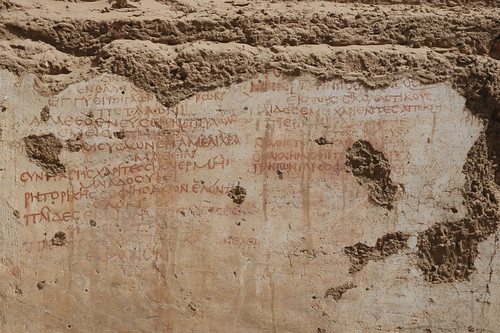I chose this image of Greek text from Amheida, Egypt, to represent the erosion of text as written authority. As a child I grew up with the concept that if something was in print, it was authoritative and couldn’t be wrong. In this digital age where almost anyone can author and publish (a book, a blog, an encyclopedia entry) the idea of authority and gatekeepers (editors/publishers) of information is changing. We now question printed information, including books that purportedly represent correct information such as encyclopedias and non-fiction works. It becomes necessary for us to teach students that not all text is authoritative and true. They must discern for themselves what is written and not accept it as face value. This is a shift that has happened in our culture as we move from limited to unlimited texts. Our understanding of text has changed.
Categories
Tags
- Bolter
- books
- Commentary 1
- communication
- craft
- culture
- digital divide
- digital literacy
- digital natives
- digital storytelling
- education
- Future
- hypertext
- information retrieval
- information storage
- Introductions
- iPad
- language
- literacy
- mcluhan
- media
- multiliteracies
- newspaper
- Ong
- orality
- postman
- printing press
- reading
- remediation
- research
- science
- Social Media
- storage
- technological determinism
- technology
- text
- text technology
- texture
- typography
- virtual library
- web 2.0
- webslides
- writing
-
Recent Posts
Recent Comments
- joypenner on Can You See what I Mean?
- joypenner on Can You See what I Mean?
- awhetter on Living Fabric
- awhetter on Berner’s on the Net
- joypenner on Final Project: Getting Graphic
Archives
Meta
Authors


